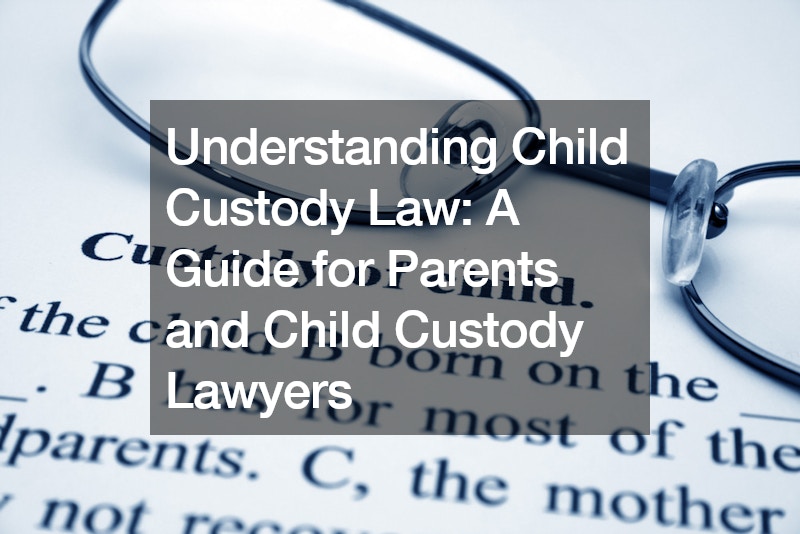Understanding Child Custody Law A Guide for Parents and Child Custody Lawyers

For parents navigating separation or divorce, child custody is often the most critical and emotional concern. This guide offers a foundational understanding of child custody law in the United States, empowering both parents and child custody lawyers to approach the process with knowledge and clarity.
1. The Core Principle: “Best Interests of the Child”
The paramount consideration in all child custody decisions is the “best interests of the child” This legal standard guides judges in determining custody arrangements that promote the child’s physical and emotional well-being.
2. Types of Child Custody Arrangements
There are two primary types of child custody arrangements, each with variations:
Sole Custody: In this arrangement, one parent has primary responsibility for the child’s physical residence and decision-making. The other parent may be granted visitation rights.
Joint Custody: There are two main forms of joint custody. Joint Physical Custody: Children spend significant time with both parents, with specific schedules outlining parenting time and residential arrangements. Joint Legal Custody: Both parents share decision-making authority regarding the child’s welfare, education, healthcare, and other important matters. 3. Factors Considered in Determining Custody
Courts consider a variety of factors when determining child custody arrangements:
The child’s age, physical and mental health, and emotional needs. The relationship between the child and each parent. Each parent’s parenting ability, including stability, financial resources, and discipline methods. The living environment of each parent and its suitability for the child. The history of domestic violence or child abuse, if applicable. The child’s wishes, if the child is of sufficient age and maturity. 4. The Role of Child Custody Lawyers
Child custody lawyers play a crucial role in navigating the legal complexities of custody arrangements. Here’s how they can assist parents:
Understanding Legal Options: Attorneys explain the different types of custody arrangements and advise on strategies that best suit the child’s needs and the parent’s situation. Gathering Evidence: Attorneys help gather evidence supporting a parent’s position, such as character witnesses, educational records, and daycare arrangements. Negotiation and Mediation: Attorneys can facilitate communication and negotiation with the other parent to reach an amicable agreement outside of court. Court Representation: If court proceedings become necessary, child custody lawyers provide strong representation, presenting arguments and advocating for the client’s interests. 5. Beyond the Basics: Considerations for Complex Situations
Certain situations require additional legal expertise from child custody lawyers:
High-Conflict Custody Cases: When there is significant animosity between parents, attorneys guide clients through the legal process while minimizing emotional stress. Relocation with a Child: If a parent wishes to relocate with the child, legal representation is crucial to navigate potential challenges. International Child Abduction: Attorneys with expertise in international law can assist in recovering a child abducted to another country by a parent. 6. The Importance of Communication and Cooperation
While legal representation is invaluable, successful child custody arrangements often depend on communication and cooperation between parents. Here are some tips:
Focus on the child’s needs: Prioritize the child’s well-being above personal differences. Communicate openly and honestly: Maintain open communication regarding the child’s schedule, activities, and well-being. Respect court orders: Adhere to established visitation schedules and custody agreements. 7. Conclusion: Seeking Expert Guidance for a Secure Future
Child custody decisions have a lasting impact on parents and children. Understanding the legal framework and seeking guidance from experienced child custody lawyers empowers both parents and legal professionals to navigate the process with clarity and achieve arrangements that serve the child’s best interests.
.






